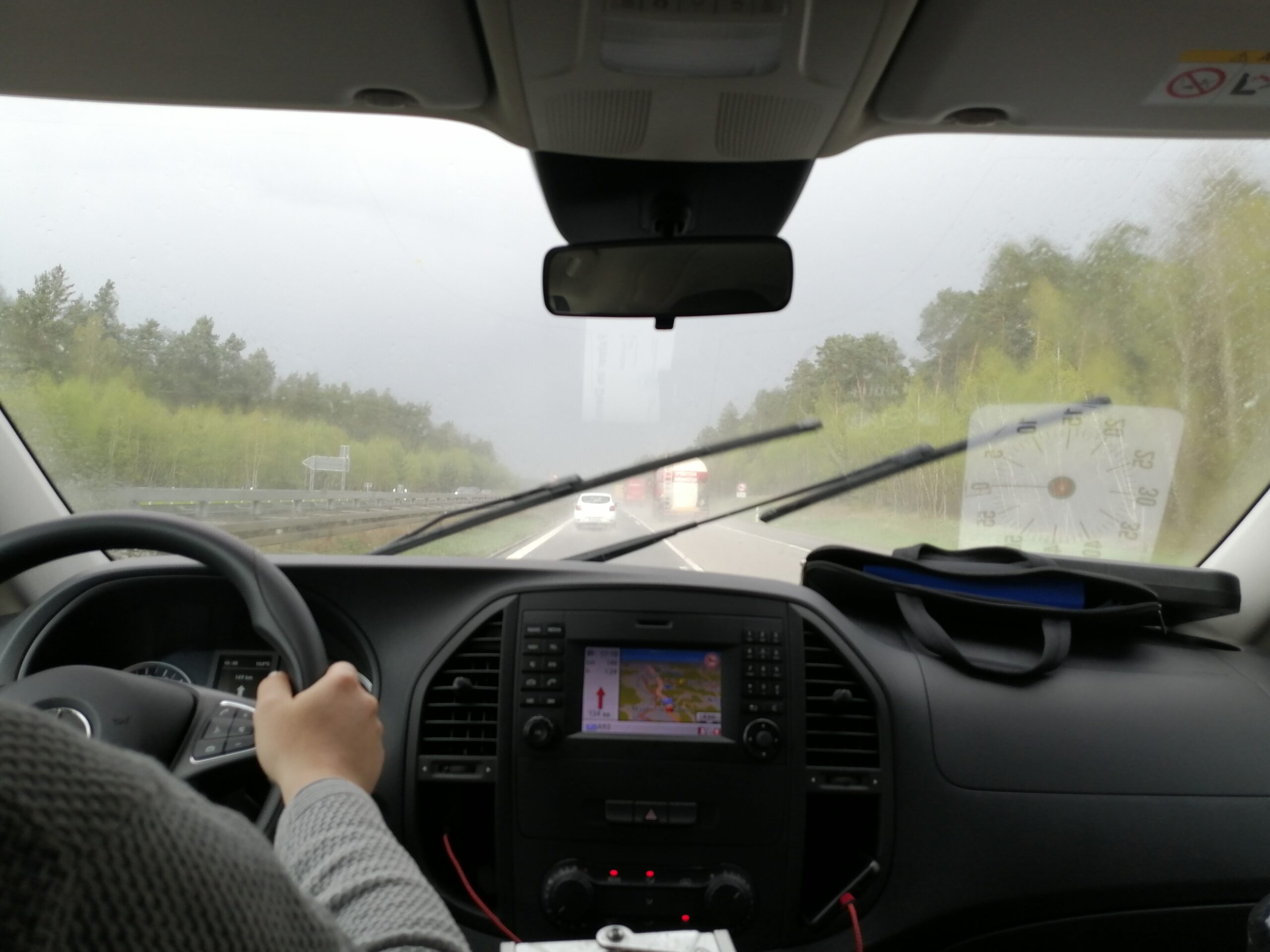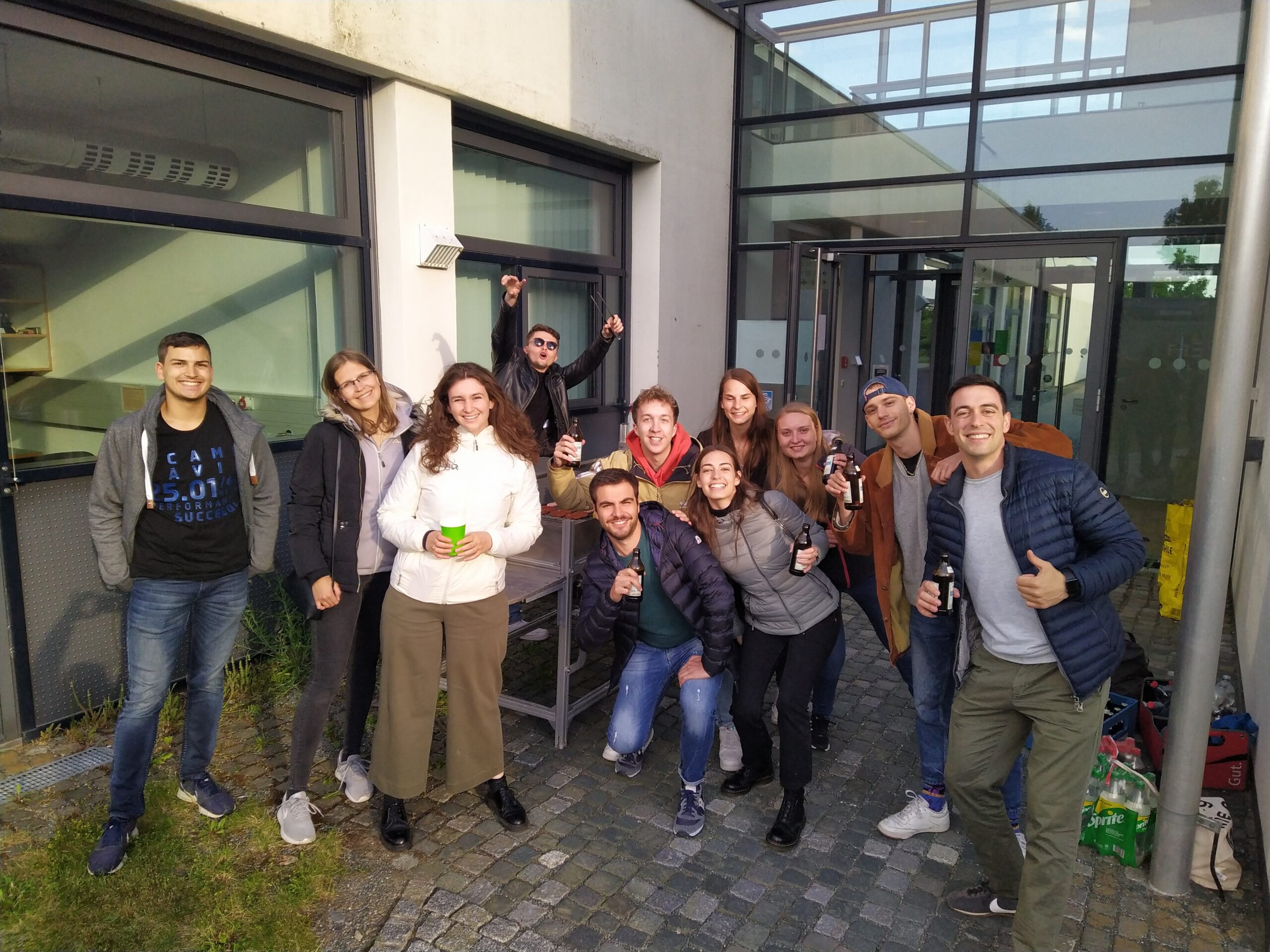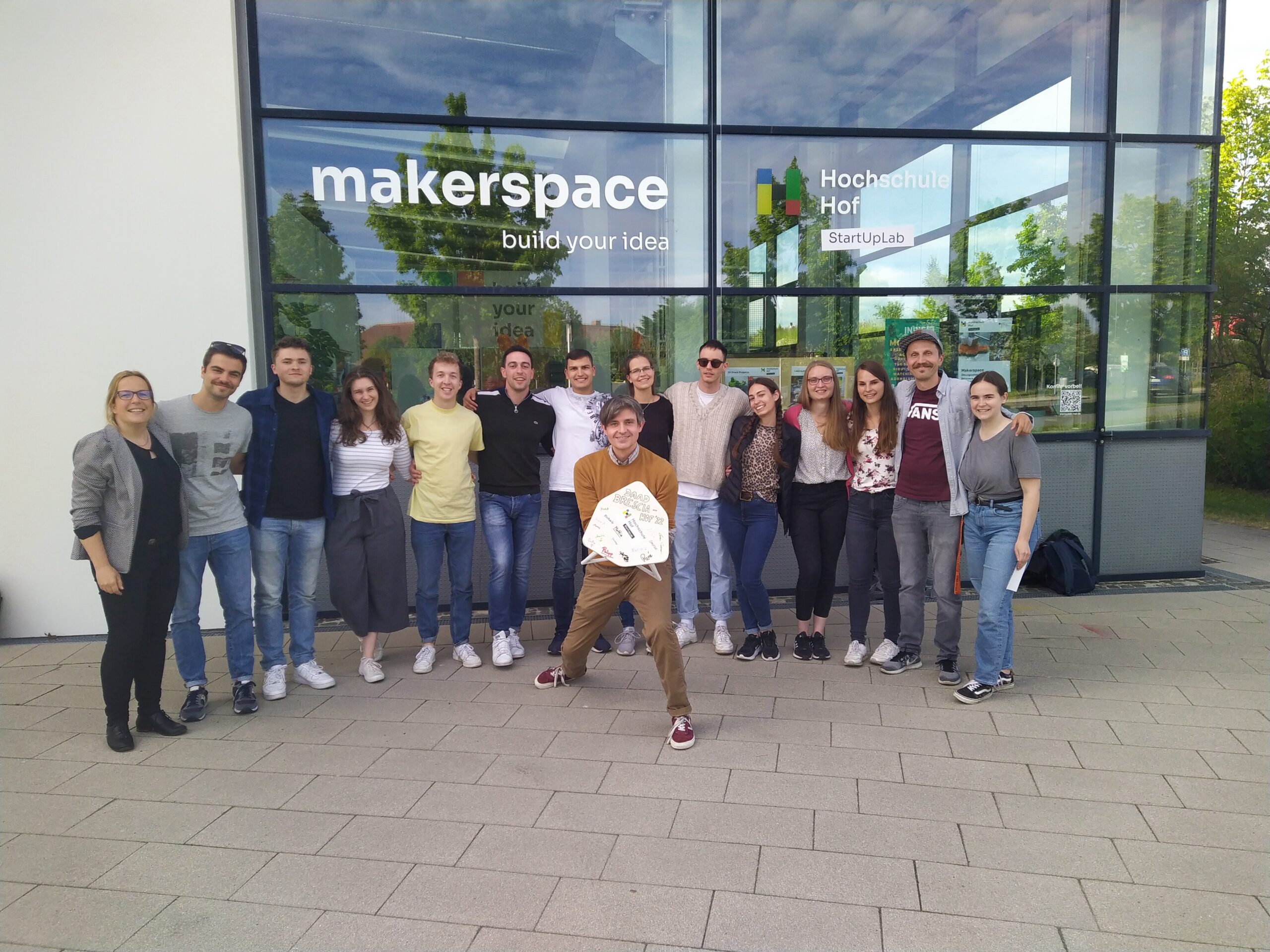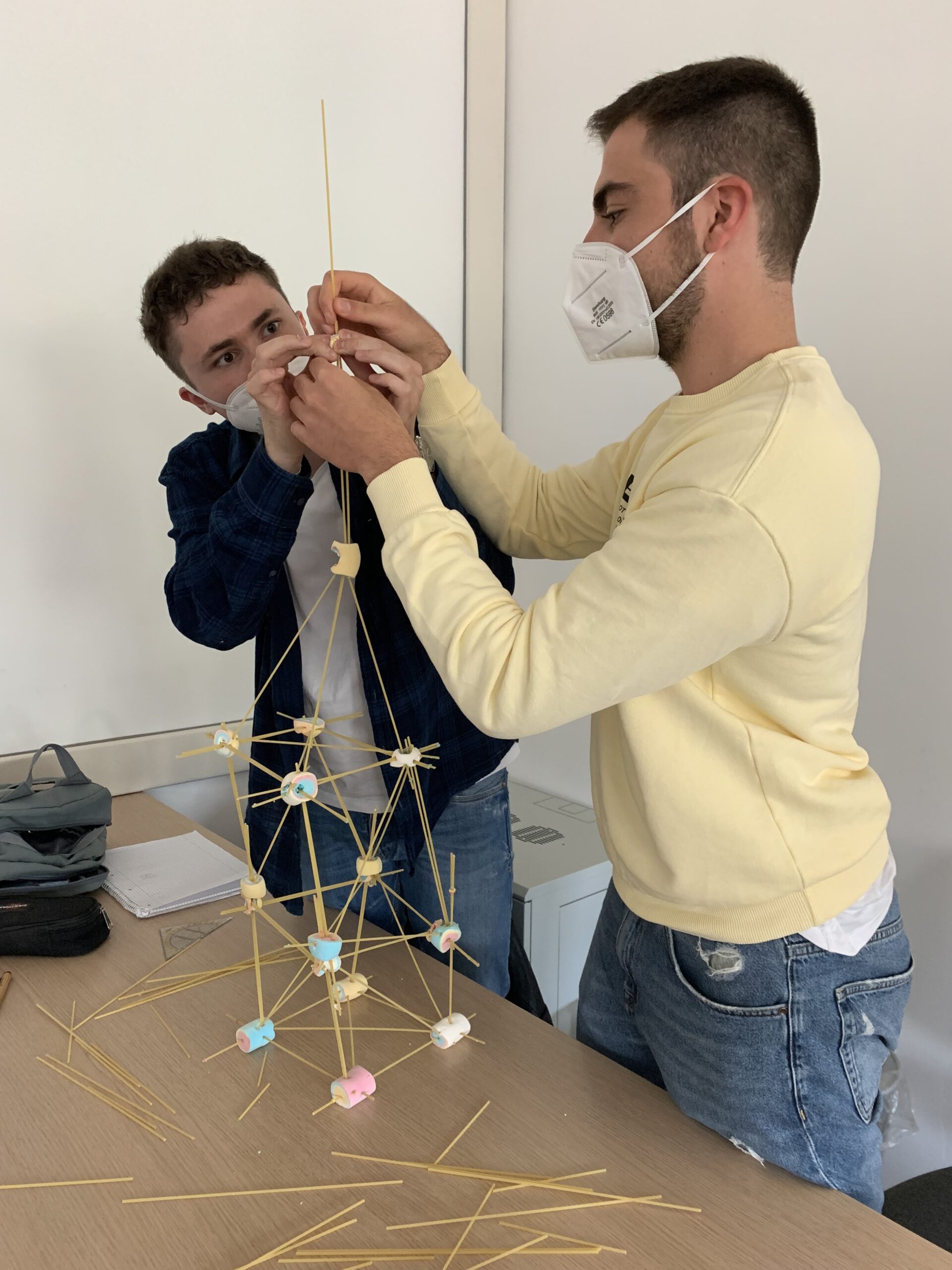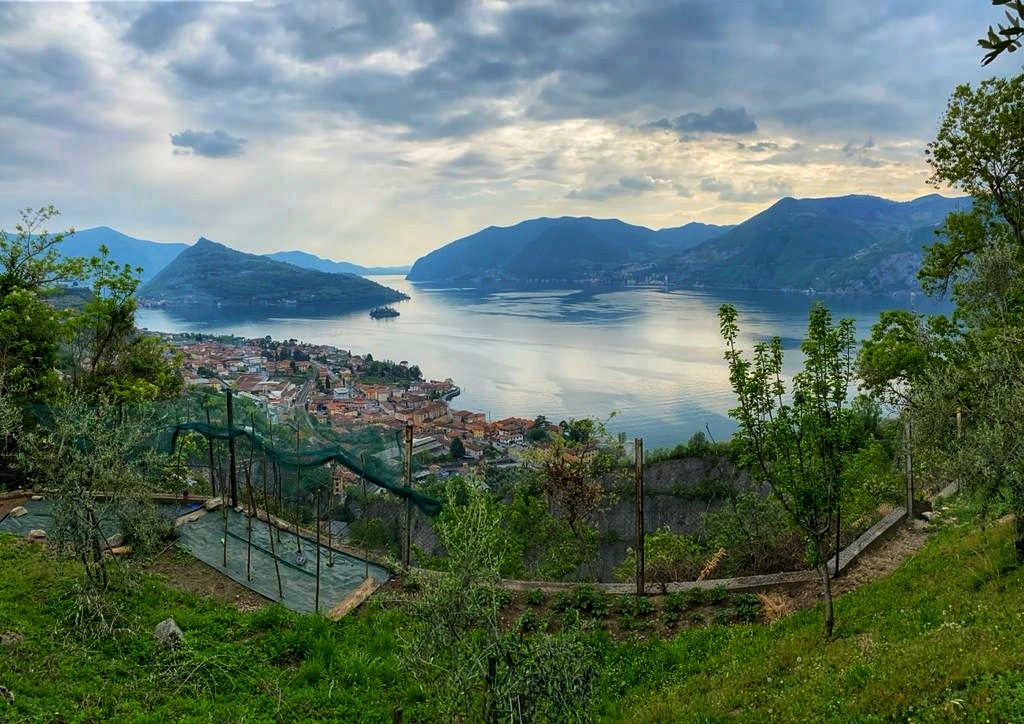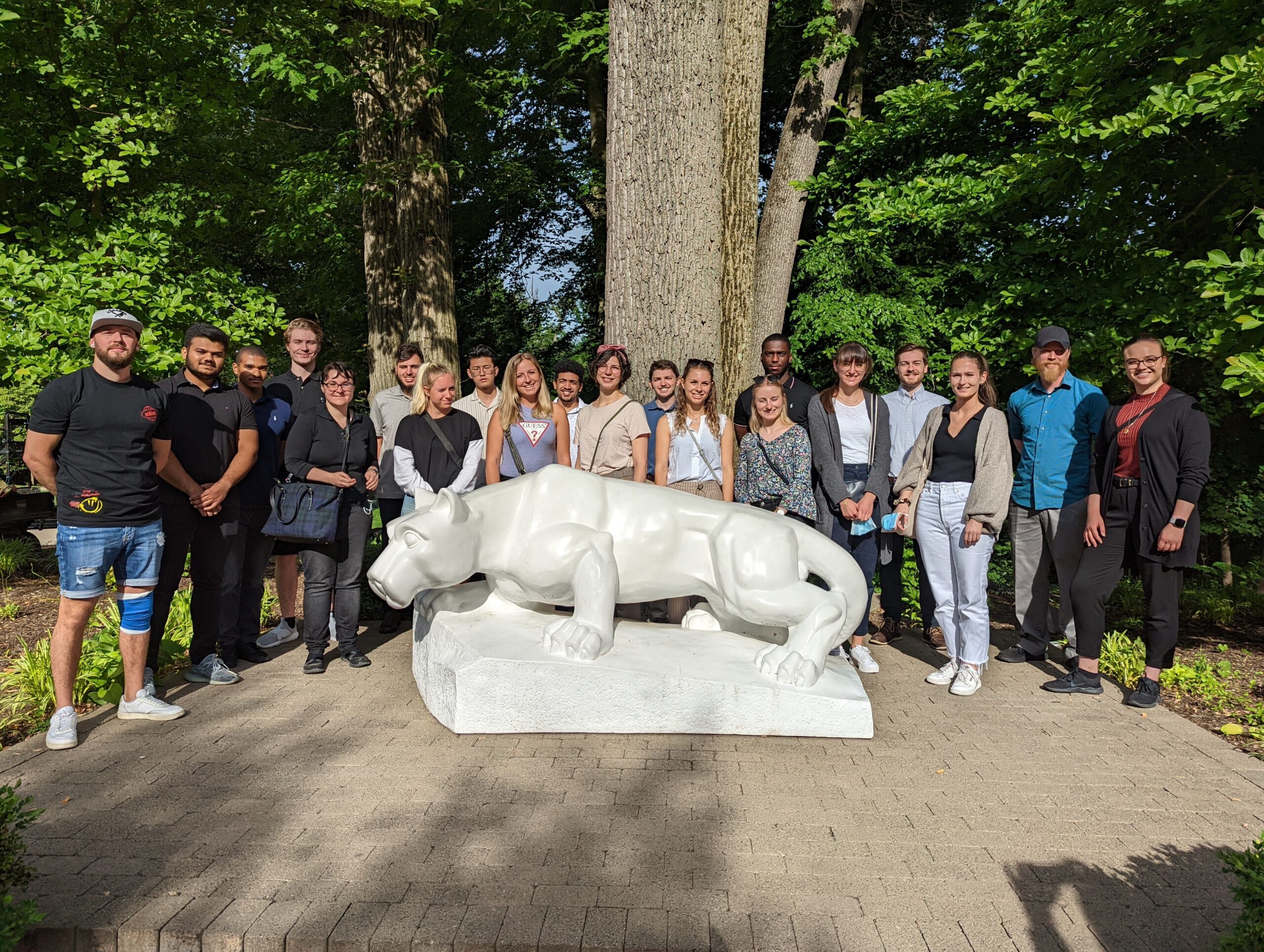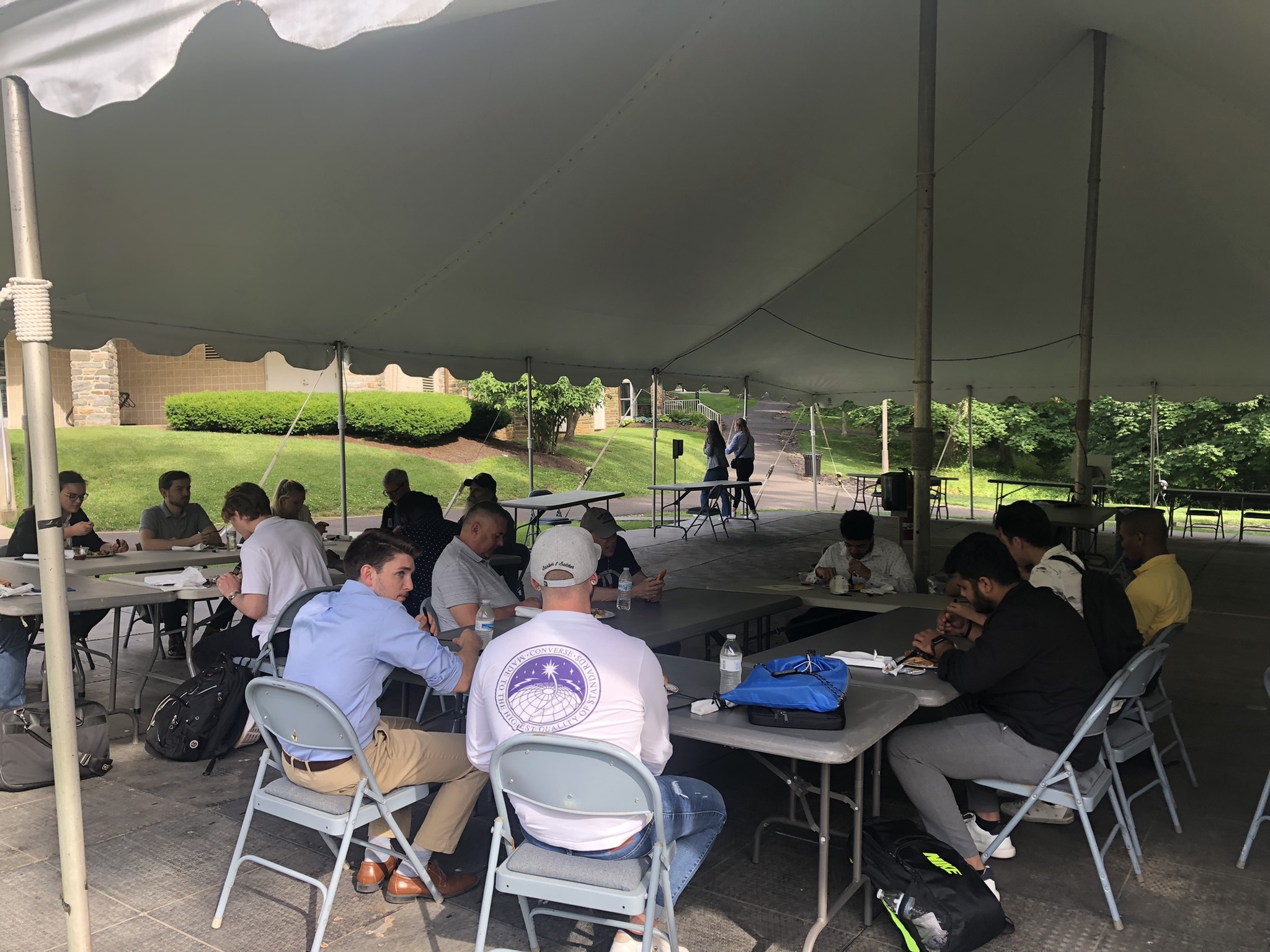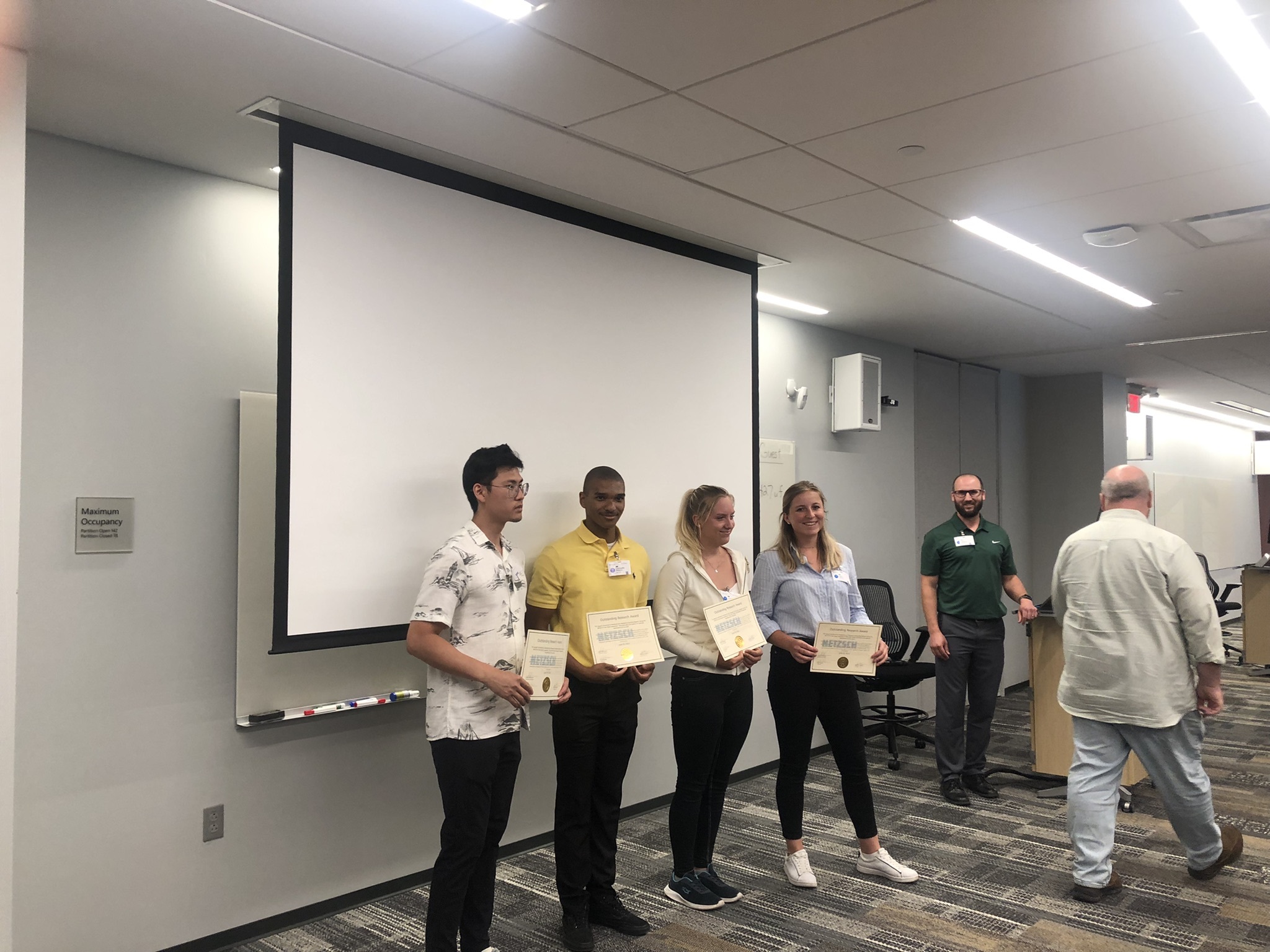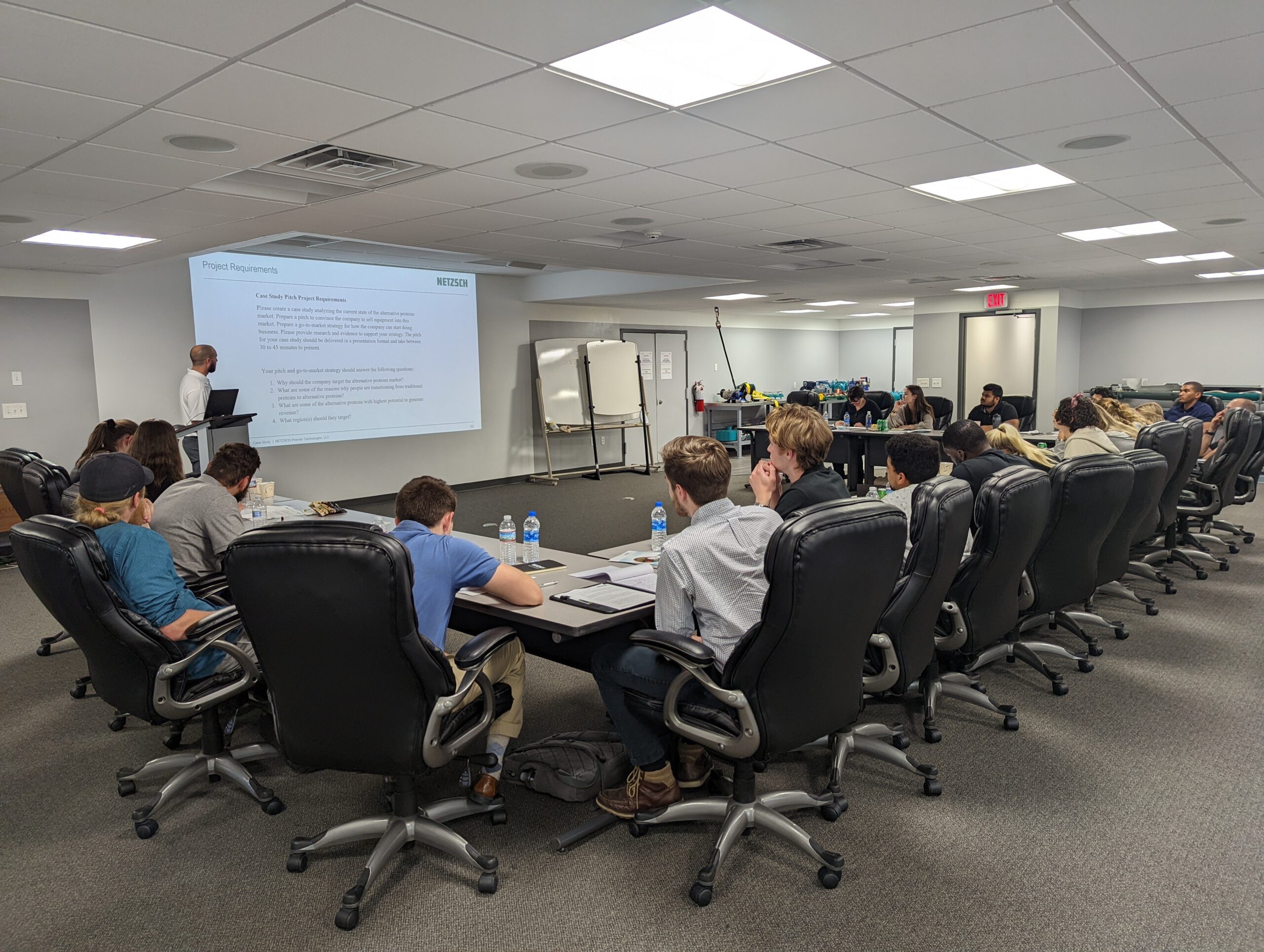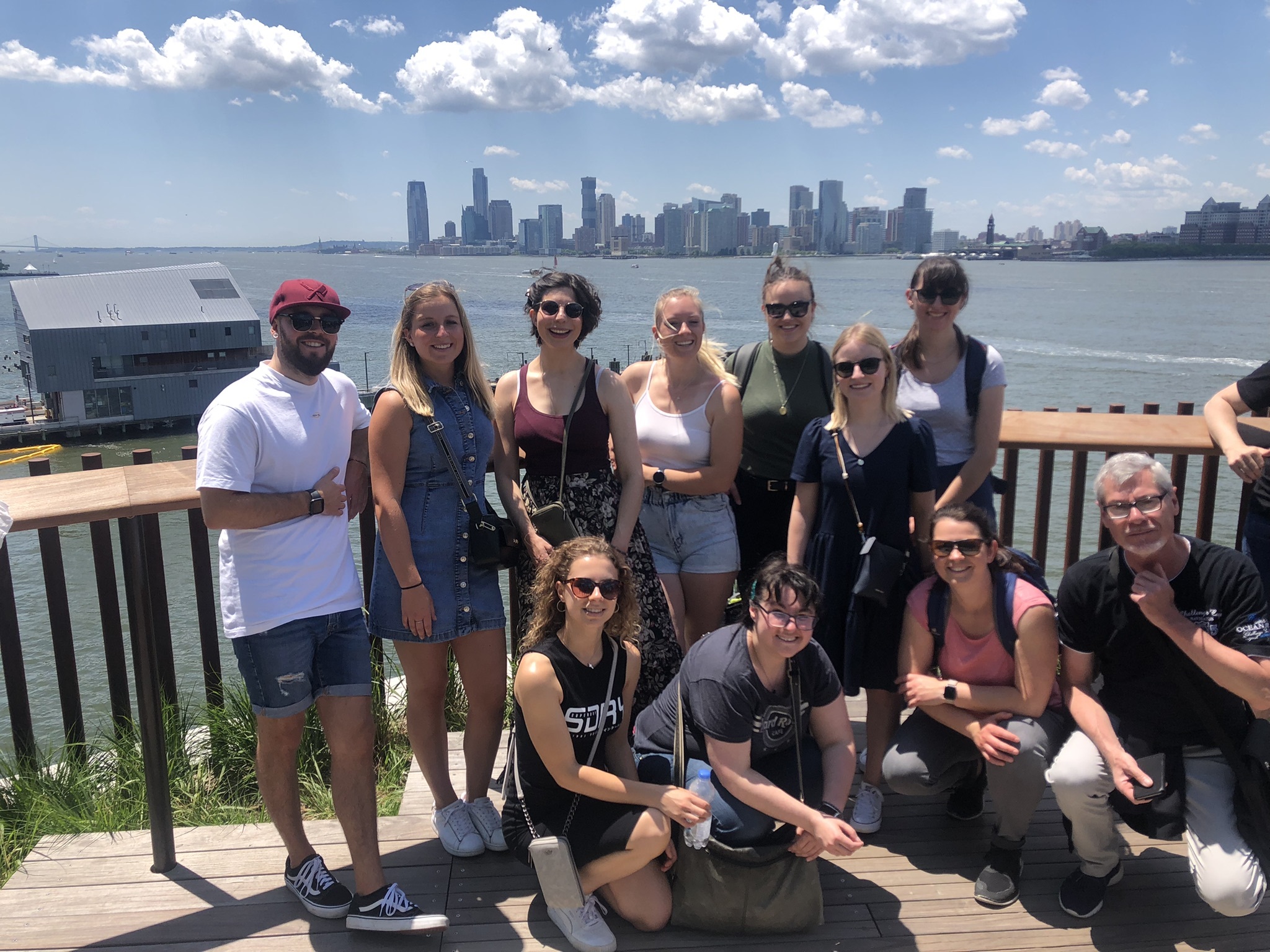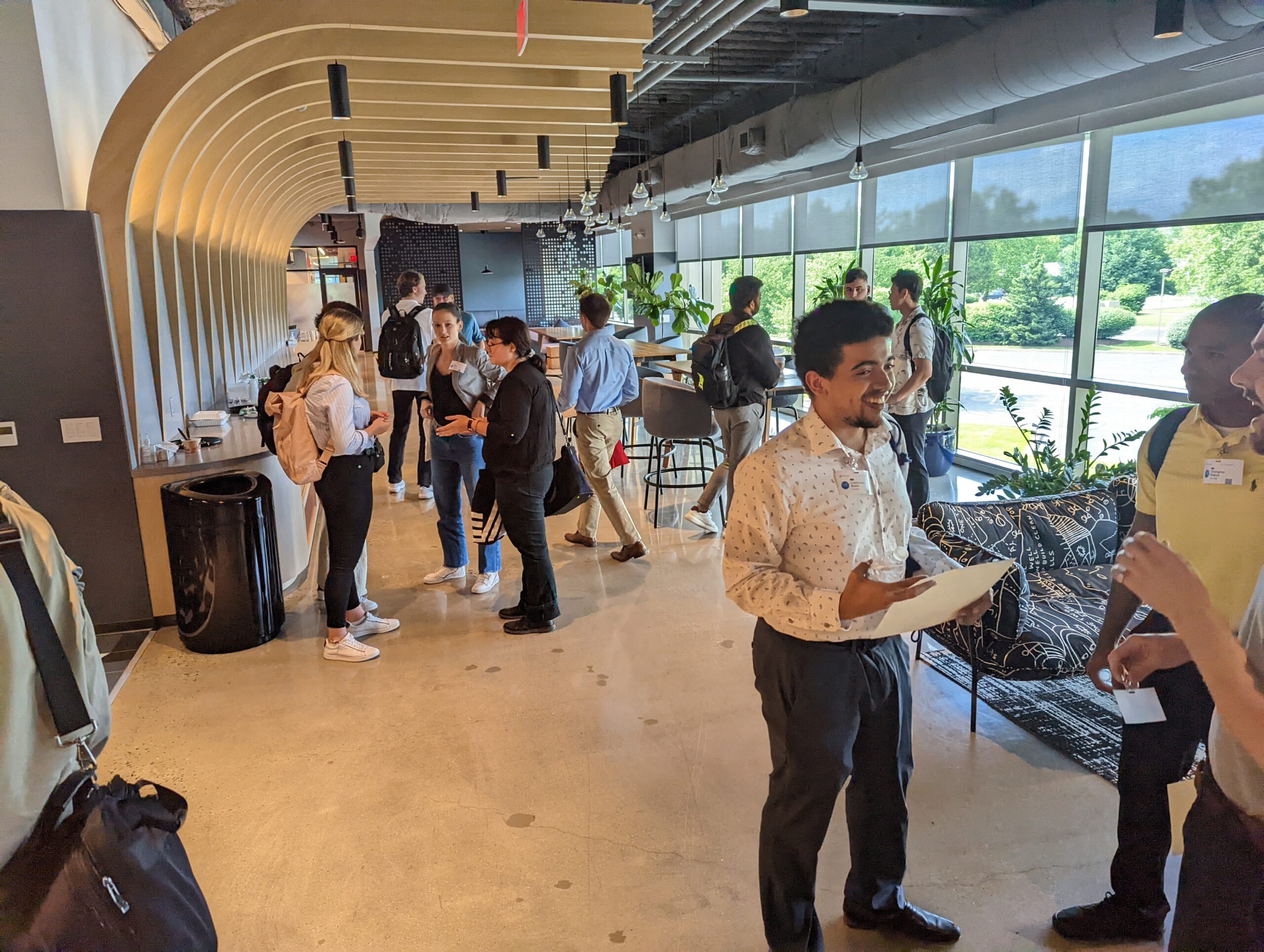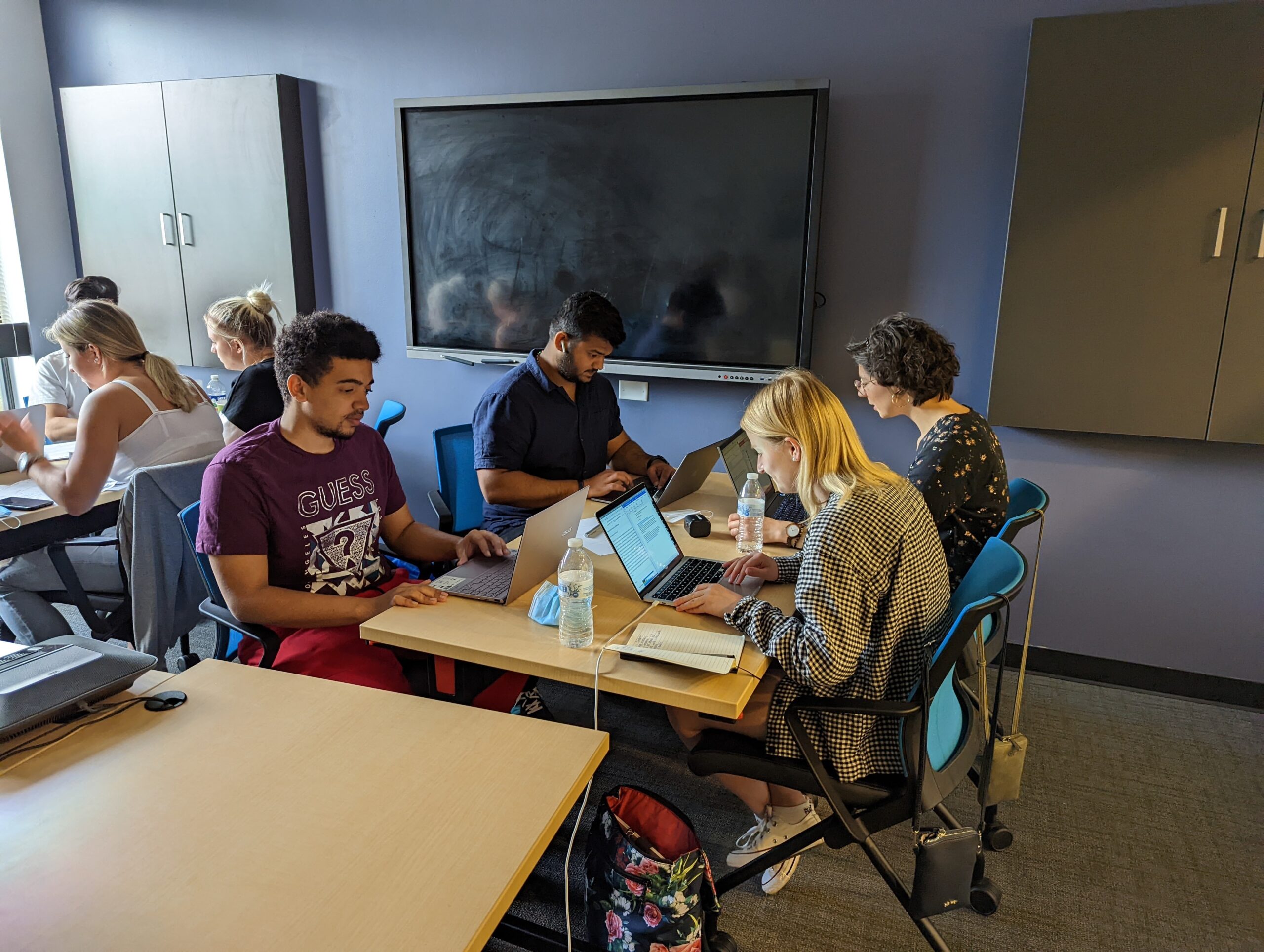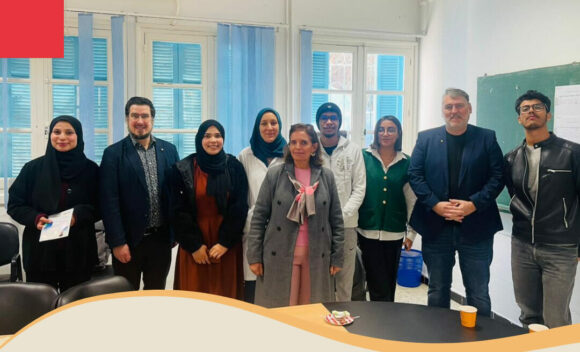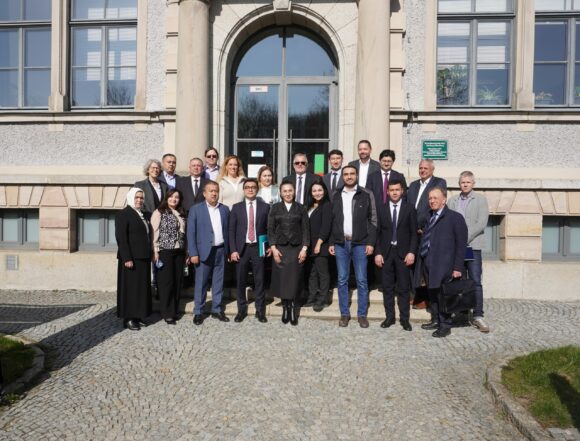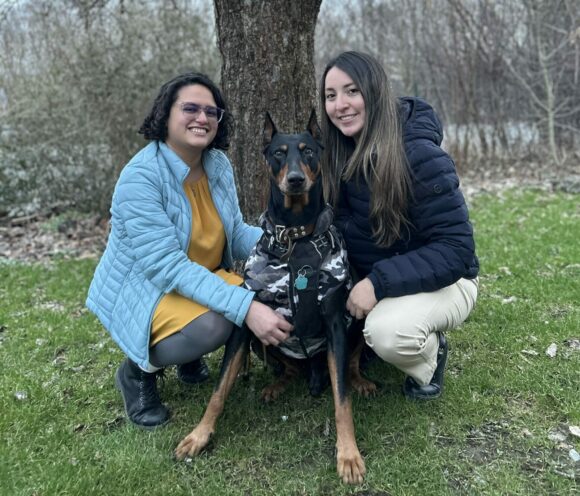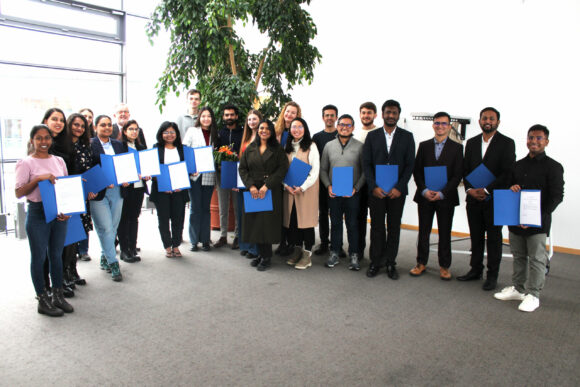In cooperation with six international partner universities in Finland, Italy, Kazakhstan, Mexico and the USA, Hof University of Applied Sciences develops joint courses and projects. What is special about this is that all modules are interdisciplinary and open to students from all disciplines and faculties. The credits earned in these courses can be credited to almost all bachelor’s degree programs.
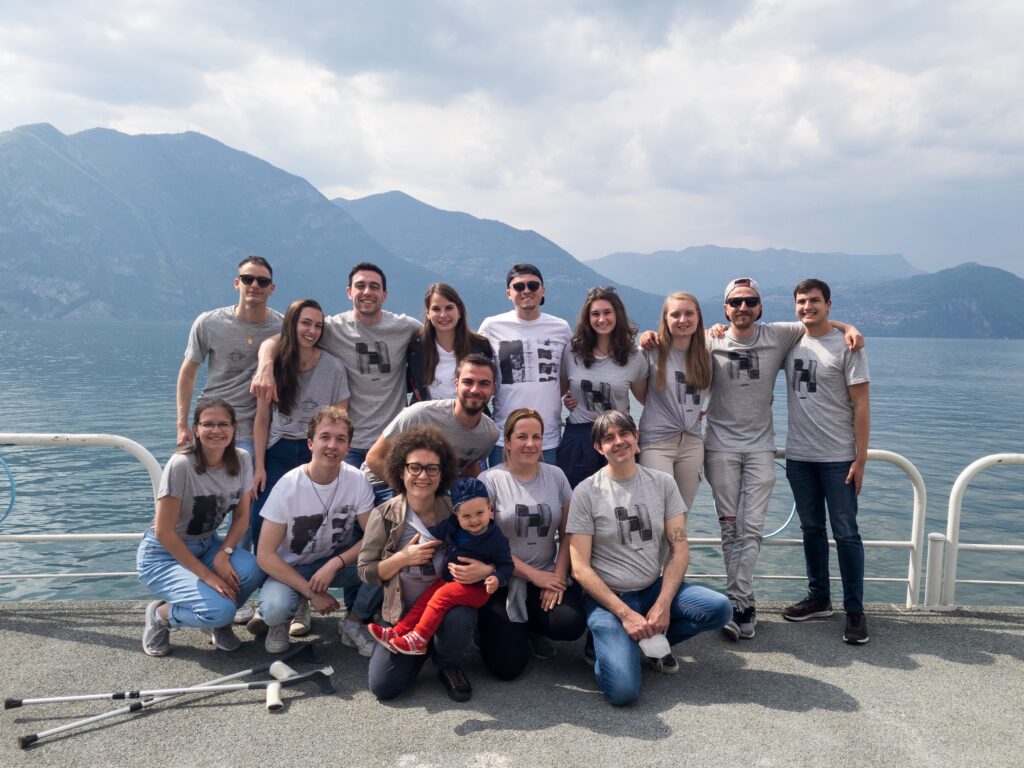
The primary goal of the I2P2 project is clearly defined: Through joint, intercultural and interdisciplinary learning in lectures and practical projects, students are optimally prepared for working in a multicultural and networked world. In internationally mixed teams, students learn and work together on practice-relevant issues
In addition to communication and collaboration in virtual learning environments, integrated excursions between the participating partners in particular ensure an in-depth exchange between students.”
Prof. Dr.-Ing. Anke Müller, subproject leader
Students can receive funding for travel and accommodation costs for participating in excursions. This is made possible by funding for the program from the German Academic Exchange Service (DAAD) and the German Federal Ministry of Education and Research as part of the “HAW.International.” program initiative.
Added value for students
I2P2 offers students new opportunities to gain experience abroad without having to spend an entire semester or internship abroad
In addition to priceless experiences and international friendships, there are also unique opportunities to make contacts for later internships or career entry. Participation in the I2P2 modules is ideal for all students who want to expand their digital, foreign language, intercultural and professional skills.”
Tina Wiegand, Project Coordinator
The program is divided into several submodules, two of which have already taken place or are taking place.
I2P2 subproject “Product Development” in Brescia / Italy
The rapid development of good and sustainable products against the background of ever faster product development cycles was the focus in April and May. Under the direction of Prof. Dr.-Ing. Anke Müller, Dean of the Faculty of Engineering, and Dr. Mirko Rennert from the Institute for Applied Biopolymer Research (ibp), five students from the industrial engineering program first traveled to the University of Brescia in Lombardy/Italy. Prof. Dr.-Ing. Anke Müller explains the approach of the tasks to be performed there: “While product development used to be strongly characterized by design and standards, ever shorter product development cycles require a high degree of dynamism. In the course of globalization and internationalization, the product development method according to VDI 2221, which was developed in Germany and strongly influenced by engineering, is increasingly being changed by modern and more agile methods such as design thinking for the prototyping process step. This must be increasingly taken into account in the training of international specialists.”
Some impressions.
German and Italian students came together in a cooperative learning module of the Industrial Engineering course at Hof University of Applied Sciences with the Industrial Engineering/Material Science department at the University of Brescia. On site, the students were divided into mixed groups, tasks were discussed and the first 3 phases of “Design Thinking” were carried out. Each team had a different task to develop a specific innovative and sustainable product. The work was accompanied by workshops and coaching sessions with the module leaders as well as joint teambuilding and leisure activities. After returning from Brescia, the groups continued to work on the joint product developments in a self-organized manner via virtual channels. At the end of May, the project was completed in Hof, where 6 Master students from the University of Brescia traveled to Hof together with Prof. Stefano Pandini (responsible for the module from the Italian side together with Prof. Silvia Agnelli). Here the groups were able to work together on the completion of their product developments and their prototypes, among other things in the Makerspace. Finally, on June 2, the groups had to present their results to each other and demonstrate their prototypes in the rooms of the digital incubator Einstein1. The week was accompanied by joint leisure activities in and around Hof, which was essentially organized and designed by the students themselves. The participating students received funding under the I2P2 program for travel and accommodation expenses.
I2P2 sub-project “Business case competition” in Philadelphia / USA
Another module of the I2P2 project was implemented in June between Hof University and Penn State University in Abington (USA). Under the direction of Prof. Dr. Maximilian Walter and Tina Wiegand from Hof University and Prof. Dr. Tom Stone and Prof. Joe Oaks from Penn State University, a total of 20 students from both universities, 10 of them from different study programs of the Faculty of Business and Economics at Hof University, were able to apply their acquired knowledge to solve real projects and problems of companies
The program cooperated here with the corporate partner NETZSCH Premier Technologies, LLC. in Exton, a subsidiary of Erich NETZSCH GmbH & Co. Holding KG in Selb.
On the first day, the students from both universities met and were divided into mixed groups. Together, they then went to the company partner in Exton, near Philadelphia, where the students were given insights into the company’s products and processes. The assignment for the student groups was then presented, with no less at stake than ensuring food supplies for a growing world population. Problems in the supply chain and climate change will drive up the cost of conventional protein products such as meat and fish in the future. The students therefore studied the market for “alternative proteins” and developed concepts to support Netzsch in its decision-making process to enter this market. They presented strategies for market introduction and ideas to generate new business in this emerging market.
Some impressions…
On the following days, the students worked in self-organized teams in the university and were accompanied by coaching and regular reviews from the module leaders. At the end of the project on June 10, the final presentations of the individual teams took place in front of the management of NETZSCH Premier Technologies, LLC at the premises of the Microsoft Technology Center Philadelphia. The teams presented their results in 30-minute presentations. The company representatives then awarded prizes for the team with the best solution, the most creative ideas or for the best teamwork, among other things. The winning teams were also offered internships at the company.
The students were optimally prepared for later professional challenges within the framework of the module, in which they had to work with people they did not know in internationally and interdisciplinarily mixed teams on the solution of concrete practical problems. Through the involvement of the corporate partner, they also gained insights into real entrepreneurial processes and procedures.”
Prof. Maximilian Walter, Faculty of Economics at Hof University of Applied Sciences
The module is an elective module of the Faculty of Business and Economics and can be taken by all students – including those from other faculties – and credited as part of their respective degree program. “The I2P2 project was a complete success for all participants and the cooperation is to be further expanded in the context of additional case studies and joint courses,” concludes project coordinator Tina Wiegand.
Funded by



